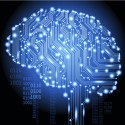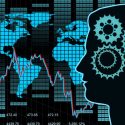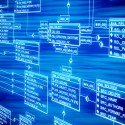The Data Scientist Skill Shortage in Government: Part II
There are data science graduate degree programs popping up all over the country, but relatively few that are focusing on the problems of the public sector.

There are data science graduate degree programs popping up all over the country, but relatively few that are focusing on the problems of the public sector.

Open data may not be sufficient to solve some of our toughest social problems. Skilled data professionals working with government officials and neighborhood stakeholders in partnership to develop new solutions requires good data, but also trust.

Most of us are not that familiar with what happens behind the scenes to process the petabytes of data collected through sensors, cell phones, images, search engines and financial transactions, but it’s safe to say that the analysis of these data make our current information-based economy run.

Government already collects data about us that could be used to more efficiently provide access to the range of services that one might need. Through implementing a consent process, like what the health care and financial sectors have done, government could make better use, through data sharing, of the data it already has.

Data collection must get out of its current antiquated ways and embrace new technologies to support services for the vulnerable.

The public sector is challenged to collect and analyze data to drive improving the lives of vulnerable populations. What are the challenges and the potentials to have policymaking and program administration be more data-driven?